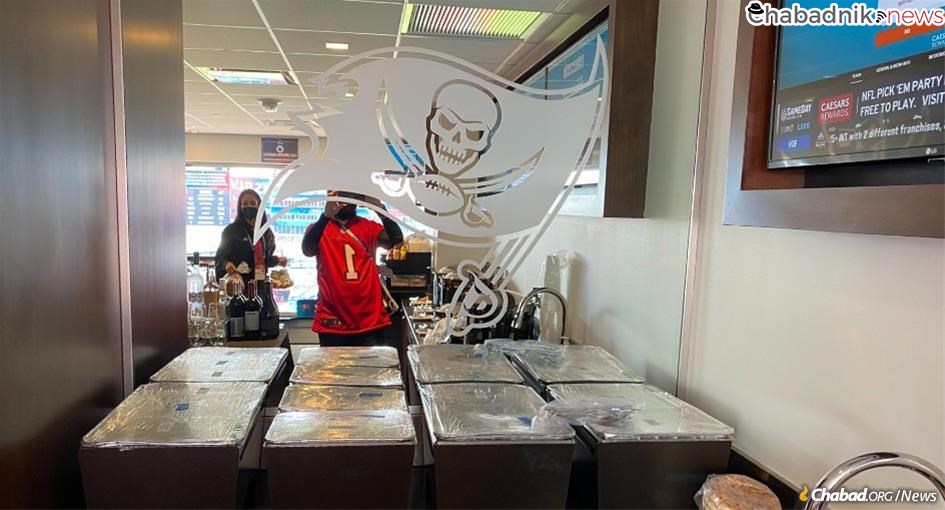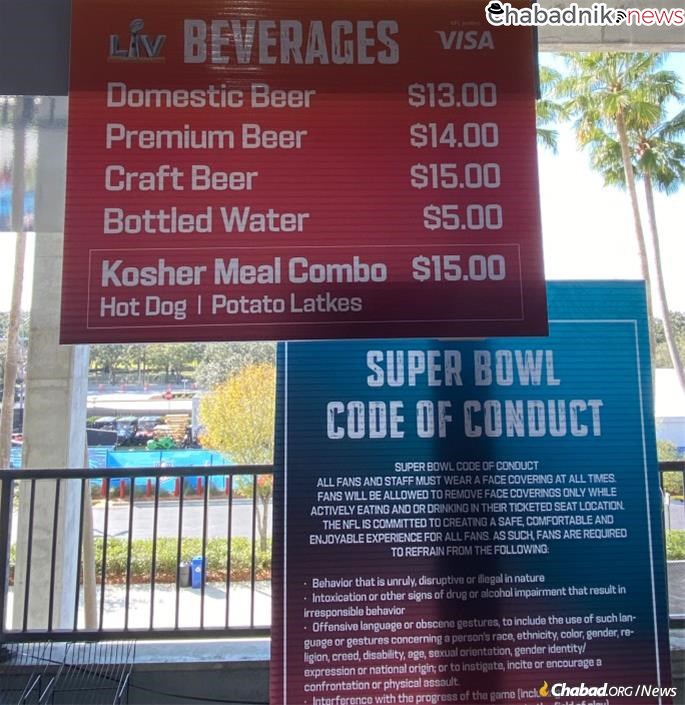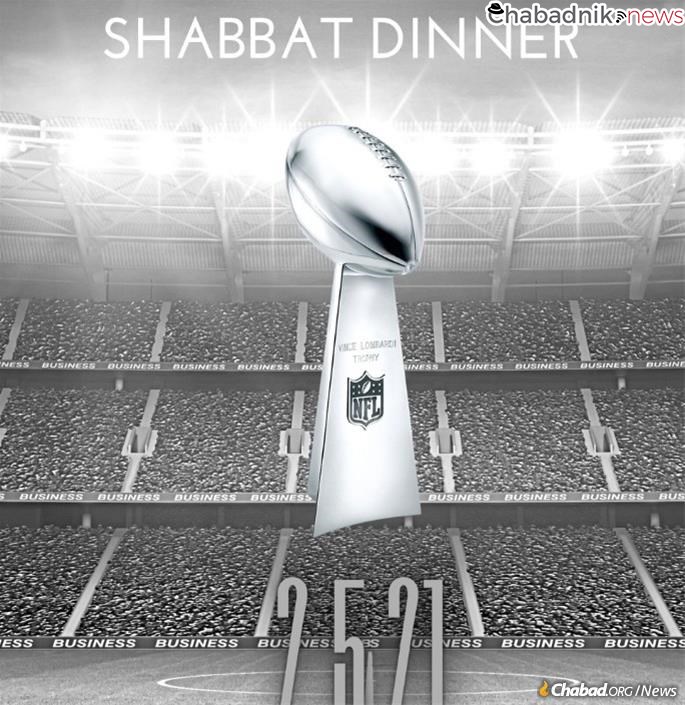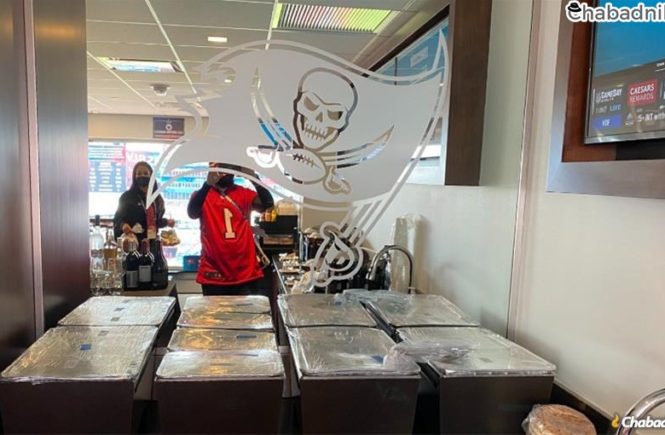Chabad of Tampa brought mitzvah opportunities to sports’ biggest stage

This year was the first time a Super Bowl was played—and won—by the home team on its home turf. And for some Jewish Tampa Bay fans, it was also the first time they felt truly at home, as the Buccaneers coordinated with Chabad of Tampa to help set up a kosher concession stand where hundreds of fans took a break from the game to don tefillin, enjoy a kosher hot dog or potato latke, or just chat with the rabbi.
“For community members to see the Tampa Bay Buccaneers accommodating kosher needs really touched them,” said Rabbi Mendy Dubrowski, who co-directs Chabad CHAI South Tampa with his wife, Dina. “In Tampa, there is a significant Jewish community, but not always is that community accommodated or catered to, and to see a team on the biggest stage in the sports world say, ‘We recognize your unique requirements, your Jewish dietary standards, and we want to make sure you are as comfortable as everyone else at this game’—it really moved them and touched them.”
The Dubrowskis, who have held menorah-lightings at Raymond James Stadium for the past several years, reached out to team officials several weeks ago, and once it became apparent that limited attendance would be allowed at the game, they sprang into action, coordinating with stadium vendors to enable the food stand, as well as an elaborate kosher menu for guests in the stadium suites.
Dubrowski, who also served as the kosher supervisor at the stand, said the response from Jewish attendees was overwhelmingly positive.
“One fan said he never expected to have kosher food available at the game here in Tampa,” said Dubrowski. “Another community member said that they never doubted that Chabad would be present at the game because, as he noted, ‘Where is Chabad not present!?’ ”
In addition to the gameday offerings, Chabad of South Tampa also hosted a Friday-night outdoor Super Bowl Shabbat under coronavirus safety restrictions, and in a “thank you” gesture to the Bucs, they sent challahs—colorfully decorated in the team’s trademark red, black and white colors—to owners, managers and players.
As Dubrowski emphasized, “wherever there are Jewish people, wherever there are Jewish needs, the shliach, the rabbi feels a sense of responsibility and obligation to rise to the challenge and accommodate those needs.”








